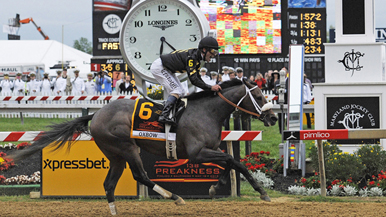|
|
Monday Morning Quarterback Part IIBy BOP StaffMay 22, 2013
Tim Briody: Short of more scenes of Alice Eve in her underwear, I'm not entirely sure. I don't think it's a promotion issue. Maybe we need to accept that, despite the success of the reboot, the appeal of Star Trek is pretty limited? It was a moribund franchise before this, and perhaps the sequel just wasn't as special as the first time out. That's all I've got. Edwin Davies: As I said earlier, I think a lot of it had to do with a lack of a sense of anything special around this sequel. Benedict Cumberbatch is a great actor and a smart choice for the film, but he's not a huge star on his own and the secretive way the film treated his character meant that people didn't get the thrill of thinking, "Oh my God, the Enterprise is going to be going up against [insert iconic villain here]!" which was basically the whole appeal of The Dark Knight, the film that best illustrated how to escalate the stakes for a sequel and raise the box office as a result. Instead, what they got was a bunch of well put together trailers which seemed to say, "Remember that film you liked from a few years ago? Well, that." So short of being up front about who the villain is - something which might not even mean that much to people who aren't at least a little steeped in Star Trek lore - the only thing they could have done is make what was at stake seem more important, because the trailers kind of failed in that regard. David Mumpower: While looking for explanations, we should not ignore the basic principles of box office analysis. I believe that Bruce overstates the difference between Star Trek and its sequel in terms of marketplace competition. The number two film during the opening weekend of the first (well, 11th) Star Trek earned $26.4 million; this weekend's number two movie grossed $35.8 million. Both competitors were comic book adaptations that shared demographic similarities. Arguing that other titles in marketplace impacted Star Trek Into Darkness is a non-starter in my opinion.
|

|
|
|

|
Friday, November 1, 2024
© 2024 Box Office Prophets, a division of One Of Us, Inc.


